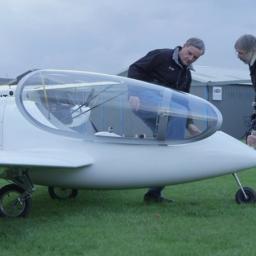Boeing developing experimental hybrid-electric aircraft
 Researchers from the University of Cambridge, in association with Boeing, tested the first aircraft to be powered by a parallel hybrid-electric propulsion system, where an electric motor and petrol engine work together to drive the propeller. The demonstrator aircraft uses up to 30 per cent less fuel than a comparable plane with a petrol-only engine. The aircraft is also able to recharge its batteries in flight.
Researchers from the University of Cambridge, in association with Boeing, tested the first aircraft to be powered by a parallel hybrid-electric propulsion system, where an electric motor and petrol engine work together to drive the propeller. The demonstrator aircraft uses up to 30 per cent less fuel than a comparable plane with a petrol-only engine. The aircraft is also able to recharge its batteries in flight.Though increasingly common in the automotive industry, the technology has never before been brought to the aerospace sector. During take-off and climb, when maximum power is required, the engine and motor work together to power the plane, but once cruising height is reached, the electric motor can be switched into generator mode to recharge the batteries or used in motor assist mode to minimise fuel consumption. The same principle at work in a hybrid car.